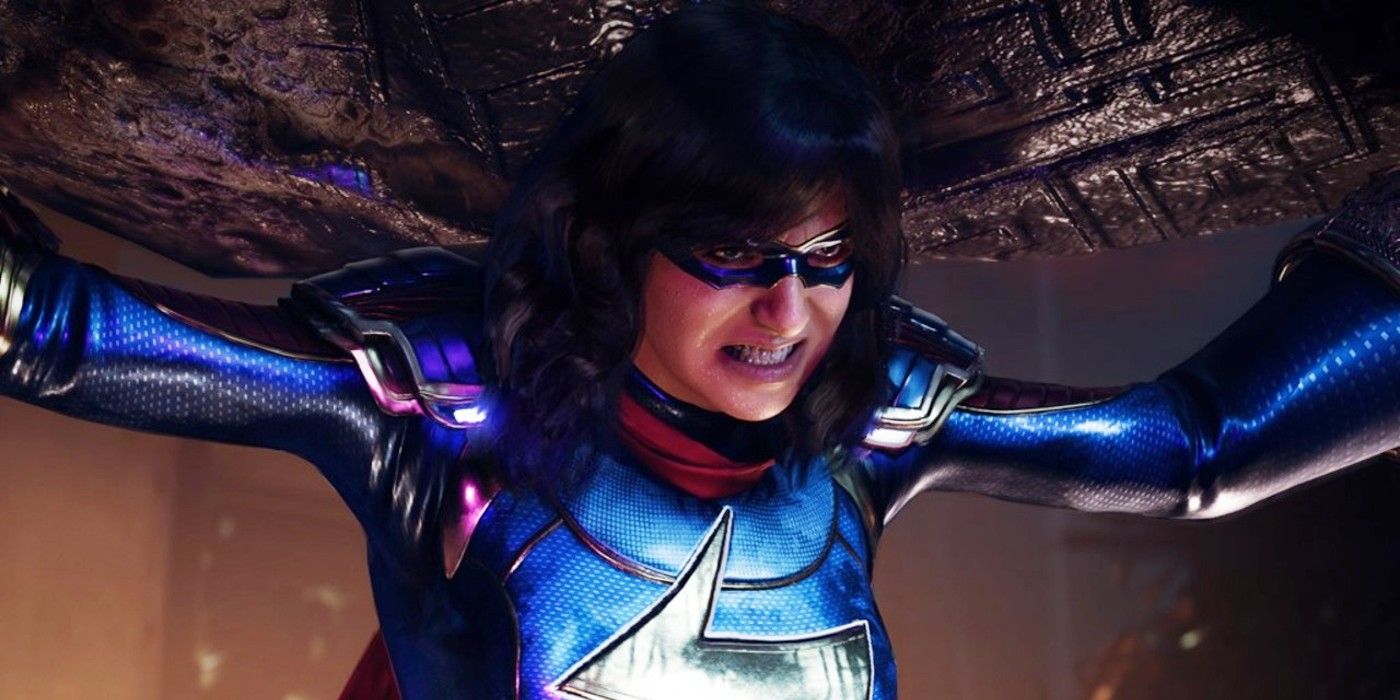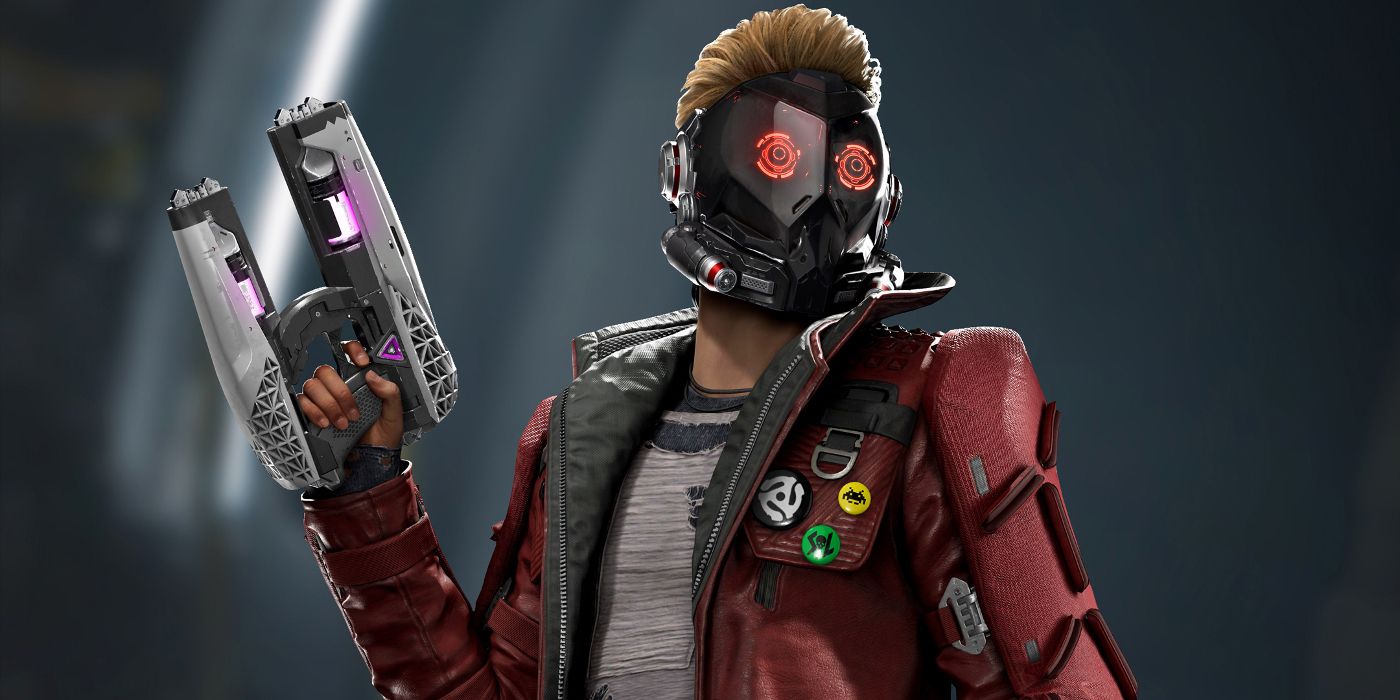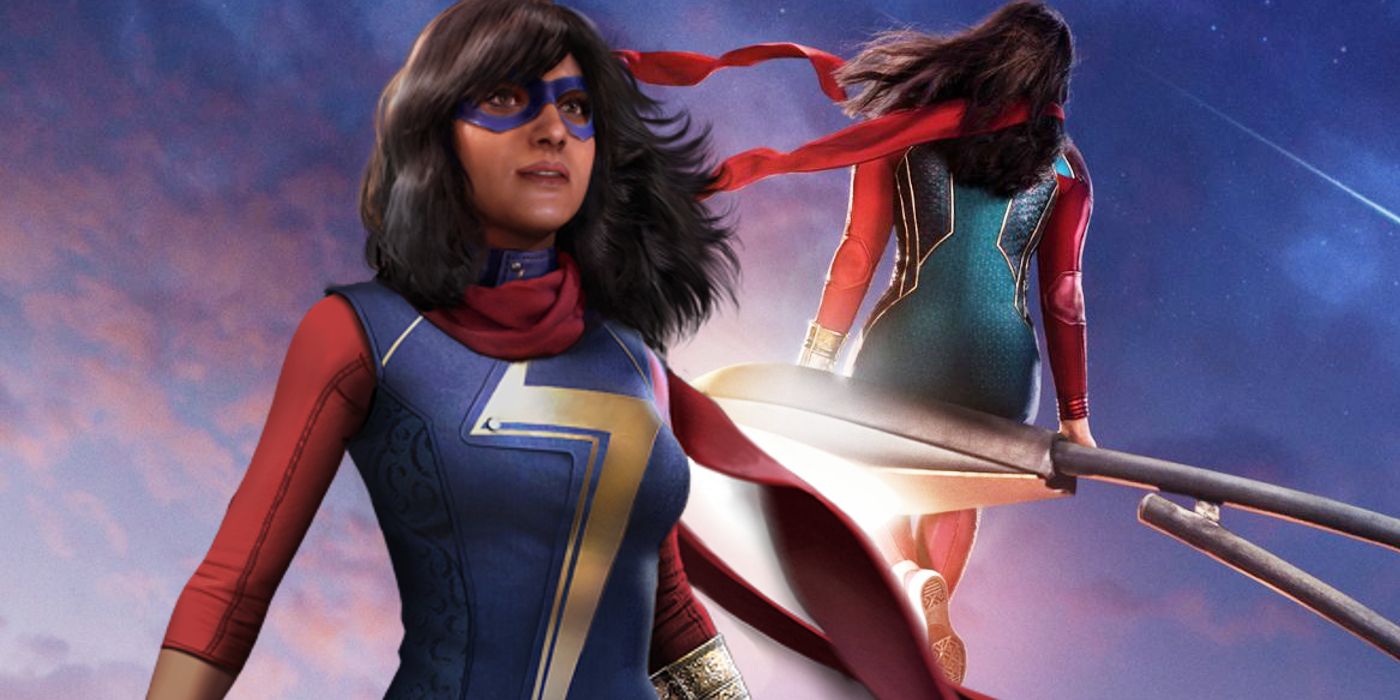It feels like the seemingly constant stream of releases from the Marvel Cinematic Universe has permeated every inch of the cultural space, and fatigue from this deluge of media is starting to make it difficult to be excited about future Marvel game releases as well. Now nearing the end of Phase Four, and with several more Phases already lined up, the already miles-long list of Marvel films will only continue to grow, and things are starting to repeat themselves in the gaming sphere. Even for those who don't keep up with the franchise, it's nearly impossible to avoid, as over the years it's become a huge part of the cultural zeitgeist, both in film and elsewhere.
Marvel has made a big impact on gaming as well, and although some titles like Marvel's Spider-Man have received positive reviews, that hasn't universally been the case. Even with positive reviews, Marvel's over saturation of the market has deteriorated the excitement surrounding the franchise. MCU burnout is even affecting those who are dedicated Marvel fans, and it's going to affect how audiences respond to game releases from the company in the future.
MCU Burnout Is Bleeding Into Marvel Games
In the past decade, over 20 movies have been released as part of the Marvel franchise, and that's only including feature films. There have also been an increasing amount of Disney+ shows that have further fleshed out the already bloated universe, and other series that began on Netflix and other networks previously. Even gems that stand out from recent media can't make up for the fact that there are so many successive releases there's barely any time to get excited about one release before another is on the horizon.
Just last month, a new Marvel game coming from EA was announced as part of a multi-game collaboration between the two companies in what feels like the beginning of a video game version of the MCU. While Marvel games haven't reached the same level of over saturation as the MCU has, an increasingly large amount of planned games are beginning to approach a concerning territory. This arrangement with EA is far from the only things Marvel has in the works game-wise either, with several other titles also in development that are set to release over the next few years, feeling more and more similar to the MCU release pattern.
Marvel's Midnight Suns is set to release later this year, and Marvel's Spider-Man 2, Marvel's Wolverine, and a Marvel game from Uncharted director Amy Hennig are planned for the future as well. While this amount on its own isn't particularly egregious, the fact that DLC is already planned for Marvel's Midnight Suns before the game has even released and while the base game has been facing large developmental delays, doesn't bode well for the future, and this pattern seems likely to continue. This means that even though there will be less mainline releases, an extensive focus on DLC may cause even more fatigue with the franchise.
Lackluster Releases Don't Help Marvel Game Fatigue
Just as it's harder and harder to predict the quality each new MCU release will entail for viewers, the same can be said for Marvel's video games, and it certainly doesn't help a situation where it's already growing more difficult to become excited simply due to sheer volume. There have been some high-quality titles, like aforementioned Marvel's Spider-Man, while others have been more lukewarm like Marvel's Guardians of the Galaxy. Then, there's the category of releases that have felt like a complete slap in the face, like Marvel's Avengers, with things like extreme amounts of bugs and predatory microtransactions.
There's essentially no way to know for certain whether a game will be good before it's released, but there are certain ways players can try to predict its quality in order to know how much they should manage their hype. This includes things like the track record of the developer or publisher involved, but in the case of Marvel, there are so many video game projects in the works for Marvel IPs from so many different companies, it's hard to nail down any sort of pattern. Players may find themselves getting up their hopes for something that winds up being terrible, just as with exciting new MCU releases that end up being a let-down.
With some titles, like upcoming mobile AR game Marvel World of Heroes, it's easier for fans to know they shouldn't be looking for the next great Marvel title in the release. However, with others it's not so black and white - the Iron Man project being spearheaded by EA could be great or a resounding disappointment given the publisher's mixed track record. As more titles and subsequent DLC are produced, players will already be hesitant to get excited over new releases for this reason, further compounding the hype problem surrounding Marvel games. Superheroes in general are everywhere, and their ubiquitous nature has begun to desensitize people to feeling excitement over the franchise - and not just when it comes to the Marvel Cinematic Universe.
The prevalence of superheroes is not likely to change any time soon with the coming plans for the MCU, and the success of Marvel's films may be making developers aspire to something similar. If Marvel games stop chasing the MCU in terms of their stories and flooding of the market, fans will be much better off, as it will likely ensure more reliable quality and result in fans being able to get excited about upcoming releases. However, if Marvel games continue down a path of emulating the MCU in their mixed quality and slew of content, the big bubble of excitement surrounding their titles could very well pop. Unfortunately, there's a good chance that this will be the case - the popularity of Marvel has made it synonymous with being a cash cow, which is often much more of a motivator than making a quality product. Even for quality titles, it may be an uphill battle for developers to try to compete with the overwhelming fatigue caused by the Marvel Cinematic Universe, because for some, even if it's not in movie form, any new Marvel feels like too much.



